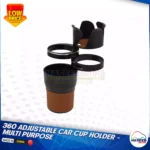The Future of Technology in Automobiles: What to Expect in the Next Few Years for Cars, Bikes, and the Automotive Industry in Pakistan
The world of automotive technology is evolving rapidly, and the next few years are set to bring even more transformative changes to the way we think about and use vehicles. From electric cars and autonomous driving to advanced safety features and connected vehicles, the future of transportation is promising to be smarter, more efficient, and greener. In Pakistan, these technological trends are gradually becoming more relevant, influencing the automotive market in terms of availability, pricing, and consumer preferences.
In this in-depth blog post, we’ll explore what the future holds for cars, bikes, and the automotive industry in Pakistan, with a focus on emerging technologies and their potential impact on the market.
What Will Technology Be in the Next Years in the Pakistan?

1. The Rise of Electric Vehicles (EVs) in Pakistan
Globally, the shift towards electric vehicles (EVs) has gained significant momentum, and Pakistan is beginning to follow suit. With rising fuel prices and increasing awareness of environmental issues, EVs are seen as a viable alternative to traditional combustion engine vehicles.
What to Expect from EVs in the Coming Years:
-
Battery advancements: One of the primary challenges for electric vehicles in Pakistan has been the limited range of available EV models. However, technological advancements in battery technology are expected to significantly improve the range and reduce charging times for EVs. Solid-state batteries and lithium-ion advancements will enable vehicles to travel further on a single charge, making EVs more practical for long-distance travel.
-
Infrastructure development: One of the biggest hurdles for EV adoption in Pakistan is the lack of charging infrastructure. In the next few years, we can expect more charging stations to be established across major cities, helping to alleviate range anxiety and make EVs more appealing to a broader audience.
-
Lower costs and incentives: While electric vehicles currently come with a high price tag, global trends suggest that the cost of EVs will continue to drop due to advancements in manufacturing and battery costs. In addition, the Pakistani government has been offering incentives and tax reductions on electric vehicles to encourage adoption. This could lead to a more affordable price range for EVs in the local market.
-
Popular models in Pakistan: Brands like MG ZS EV and Hyundai Ioniq have already entered the Pakistani market, and in the next few years, we can expect more global players, such as Tesla and BYD, to explore the Pakistani automotive space.
Estimated Prices for EVs in Pakistan:
As of now, most electric vehicles in Pakistan fall within the PKR 6 million to 10 million range. However, with local assembly plants and government support, we can expect prices to drop to more competitive levels, possibly around PKR 4 million to 6 million in the coming years.
2. Autonomous Driving Technology: A Distant but Inevitable Future
Autonomous driving—once considered science fiction—is gradually becoming a reality in several parts of the world. However, for countries like Pakistan, where road infrastructure and driving habits differ significantly from Western countries, the adoption of autonomous vehicles is expected to be slower but still inevitable in the long term.
What to Expect from Autonomous Driving in Pakistan:
-
Semi-autonomous features: While fully autonomous vehicles may be a decade away for Pakistan, semi-autonomous driving features like adaptive cruise control, lane-keeping assist, and automatic emergency braking are expected to become more common in luxury and mid-range vehicles. These features can make driving safer and more convenient, especially in congested city traffic.
-
Infrastructure requirements: The successful deployment of autonomous vehicles requires significant improvements in road infrastructure, traffic systems, and digital mapping. While major cities like Karachi, Lahore, and Islamabad are slowly upgrading their infrastructure, rural areas are far from ready for autonomous vehicles. In the next 5–10 years, we can expect infrastructure to catch up in urban areas.
-
Public acceptance and safety concerns: Safety concerns, especially in a country like Pakistan where traffic accidents are common, may slow down the adoption of autonomous vehicles. Local drivers and consumers will need time to trust this technology fully. However, with proper regulatory frameworks and awareness campaigns, we could see a gradual shift toward more automation in vehicles.
Estimated Prices for Autonomous Features in Pakistan:
Currently, autonomous features are only available in luxury cars like the Mercedes S-Class or BMW 7 Series, which cost upwards of PKR 30 million. As these technologies become more widespread, we may see them in mid-range vehicles priced around PKR 7 million to 10 million.
3. Connectivity and the Internet of Vehicles (IoV)
Another major trend in the automotive industry is the Internet of Vehicles (IoV), where vehicles are connected to the internet and each other, enabling a whole new level of convenience and safety. In Pakistan, the trend of connected cars is still in its infancy, but we can expect it to grow in the coming years.
What to Expect from IoV:
-
Vehicle-to-Vehicle (V2V) communication: This technology allows vehicles to communicate with each other, sharing data such as speed, location, and road conditions. This helps prevent accidents and improve traffic flow, especially on highways. While this technology is not yet available in Pakistan, global advancements indicate it could be integrated into new models over the next decade.
-
Smart car features: Many vehicles in the next few years will come equipped with infotainment systems, GPS tracking, and remote diagnostics. These features allow drivers to connect their smartphones, monitor vehicle health, and receive real-time traffic updates.
-
5G integration: With the introduction of 5G networks in Pakistan, we can expect faster and more reliable connectivity in vehicles. 5G will enable seamless communication between cars, traffic management systems, and even smart city infrastructure, enhancing the overall driving experience.
Prices for Connected Cars in Pakistan:
Vehicles with advanced connectivity features are typically available in higher-end models like the KIA Sportage and Hyundai Tucson, priced between PKR 5 million to 7 million. As connectivity becomes a standard feature, expect these technologies to be available in more affordable cars in the PKR 2.5 million to 4 million range.

4. Motorcycles and E-Bikes: The Future of Two-Wheelers in Pakistan
In Pakistan, motorcycles are the most popular mode of transport, especially in urban and semi-urban areas. As the country embraces new automotive technologies, motorcycles and electric bikes (e-bikes) are also expected to undergo significant advancements.
What to Expect in the Coming Years for Bikes:
-
Electric motorcycles (e-bikes): With rising fuel prices and environmental concerns, e-bikes are gaining popularity in Pakistan. Although still at a nascent stage, the market for electric motorcycles is expected to grow as battery technology improves and prices drop. Local manufacturers such as Jolta Electric are already producing electric bikes, and more global brands are expected to enter the Pakistani market in the coming years.
-
Smart motorcycles: The future of motorcycles will also see the integration of smart features such as GPS tracking, anti-theft systems, and even rider-assist technologies. These features will provide better safety and convenience to bikers, especially in crowded urban areas.
-
Improved fuel efficiency: For conventional motorcycles, improvements in fuel efficiency and engine performance will continue. As global standards for emissions become stricter, Pakistani manufacturers will likely adopt new technologies to meet these regulations.
Estimated Prices for E-Bikes in Pakistan:
Currently, electric motorcycles like Jolta e-Bike range between PKR 150,000 to 200,000. With technological advancements and increased competition, we can expect prices to drop to PKR 100,000 to 150,000 in the near future, making them more accessible to a larger audience.
5. Future Automotive Market and Pricing in Pakistan
As Pakistan’s automotive market adopts new technologies, it is expected that the prices of vehicles will be influenced by a variety of factors, including government policies, tax incentives, and global trends. Electric vehicles, autonomous features, and connectivity will all contribute to the upward pricing of high-tech models. However, local manufacturing and government incentives for green technologies could stabilize or reduce prices over time.
In the next few years, we may see:
- Increased competition in the EV market, leading to more affordable pricing.
- Affordable hybrid models gaining traction among consumers looking for fuel-efficient options.
- Technological advancements in conventional vehicles that offer more value for money.

Conclusion: The Road Ahead for Pakistan’s Automotive Future
The next few years will bring exciting changes to Pakistan’s automotive industry, with electric vehicles, autonomous driving, and connected cars taking the lead. While challenges remain—especially regarding infrastructure and affordability—the country is poised to benefit from global technological advancements. As new models and technologies enter the market, consumers in Pakistan will have more choices than ever before, enabling them to enjoy safer, more efficient, and more environmentally friendly vehicles.
At Haseeb Autos, we stay ahead of the curve by offering authentic automotive products, from car care essentials to advanced accessories. Visit our online store at Haseeb Autos to discover the latest trends and products in the automotive world. Stay tuned as we bring you the best in automotive technology!












You must be logged in to post a comment.